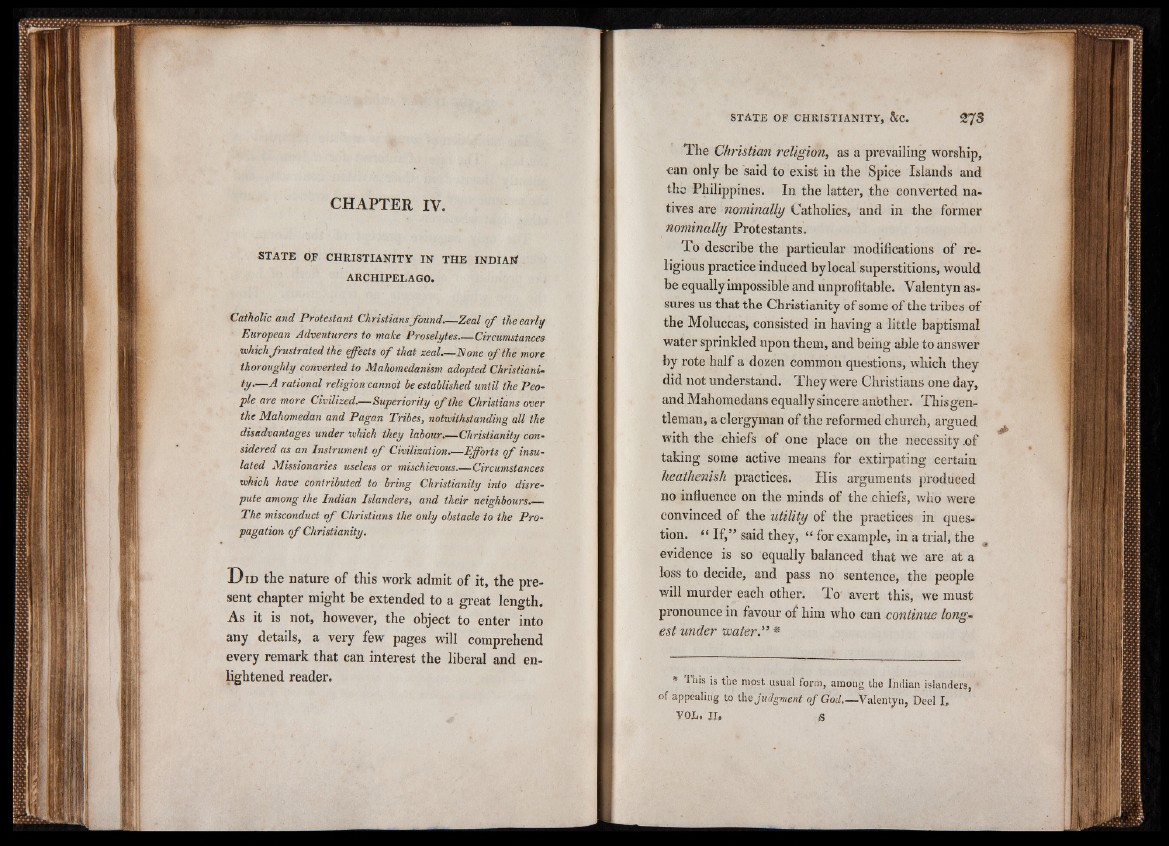
CHAPTER IV.
3T A T E OF C H R ISTIA N ITY IN T H E INDIAN*
ARCHIPELA GO .
Catholic and Protestant Christians found.—Zeal of the early
European Adventurers to make Proselytes Circumstances
which frustrated the effects o f that zeal None o f the more
thoroughly converted to Mahomedanism adopted Christianity—
A rational religion cannot be established until the People
are more Civilized.— Superiority of the Christians over
the Mahomedan and Pagan Tribes, notwithstanding all the
disadvantages under which they labour.— Christianity considered
as an Instrument o f Civilization.— Efforts o f insulated
Missionaries useless or mischievous.— Circumstances
which have contributed to bring Christianity into disrepute
among the Indian Islanders, and their neighbours.—
The misconduct of Christians the only obstacle to the Propagation
o f Christianity.
D i d the nature of this work admit of it, the present
chapter might be extended to a great length.
As it is not, however, the object to enter into
any details, a very few pages will comprehend
every remark that can interest the liberal and enlightened
reader.
The Christian religion, as a prevailing worship,
can only be said to exist in the Spice Islands and
the Philippines. In the latter, the converted natives
are nominally Catholics, and in the former
nominally Protestants.
To describe the particular modifications of religious
practice induced by local superstitions, would
be equally impossible and unprofitable. Valentyn assures
us that the Christianity of some of the tribes of
the Moluccas, consisted in having a little baptismal
water sprinkled upon them, and being able to answer
by rote half a dozen common questions, which they
did not understand. They were Christians one day,
and Mahomedans equally sincere an’other. This gentleman,
a clergyman of the reformed church, argued
with the chiefs of one place on the necessity .of
taking some active means for extirpating certain
heathenish practices. His arguments produced
no influence on the minds of the chiefs, who were
convinced of the utility of the practices in question.
“ If,” said they, “ for example, in a trial, the
evidence is so equally balanced that we are at a
loss to decide, and pass no sentence, the people
will murder each other. To avert this, we must
pronounce in favour of him who can continue longest
under water.” *
* Ihis is the most usual forrh, among the Indian islanders,
of appealing to the judgment of God,—-Valentyn, Deel I,
YOL. $